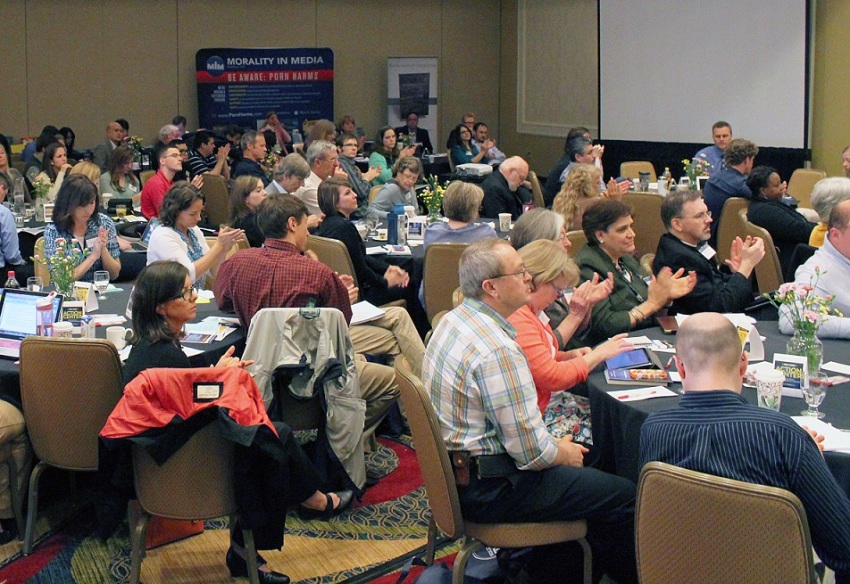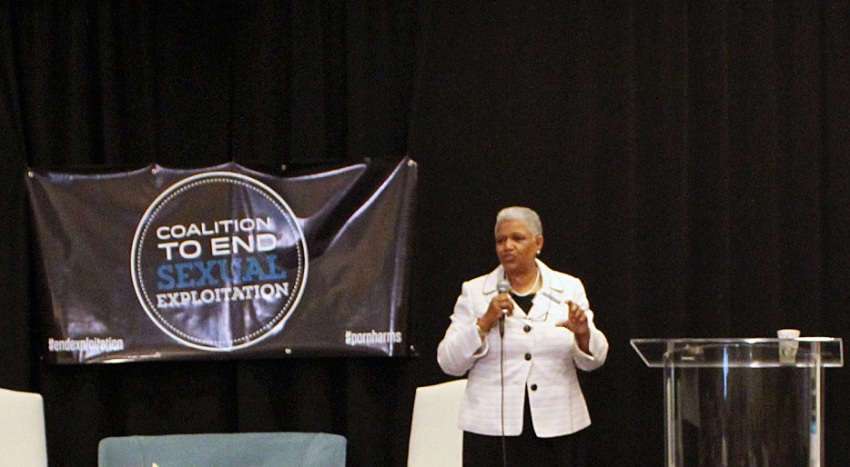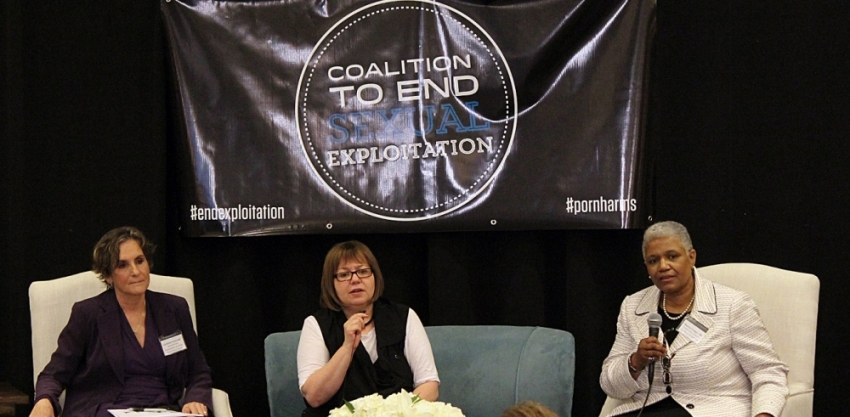'Pornland' Author: Pornography Is a 'Public Health Crisis'

TYSONS CORNER, Va. — A diverse gathering of groups and individuals has come to the Washington, D.C.-area to launch an effort to combat pornography.
The Coalition to End Sexual Exploitation held its first summit at the Tyson's Corner Marriot not far from the nation's capital. The multi-day event that began Friday morning and will conclude Saturday brings together researchers, scholars, and activists dedicated to combating pornography.
Dr. Sharon Cooper, a developmental and forensic pediatrician, discussed in her presentation the effects of early pornographic exposure among children and its relation to sexual abuse.
In an interview with The Christian Post, Cooper explained that she had worked on the issue of child abuse and maltreatment for over 30 years. "I've seen children who have been victims of child pornography production and I know what it does to them," said Cooper.
"Youth are developing sexual problems because of their exposure to adult pornography. It's a very severe issue in our country."
Adding to her remarks before those gathered about the "politics" of psychiatry, Cooper told CP that she believes the psychiatric establishment is not devoting good attention to the problem of pornography.
"I would absolutely say that psychiatry and even psychology it's at the very bottom of trying to begin to understand this whole concept," said Cooper.
Hosted by the anti-porn group Morality In Media and Pornharms.com, the Summit was sponsored and cosponsored by various special interest and religious groups.
These included the Alliance Defending Freedom, the Leadership Institute, the Catholic Diocese of Arlington, Family Watch International, and the Utah Coalition Against Pornography.

Speakers featured research and perspective on the harmful effects of pornography, its linkage to sexual violence and exploitation, and ever-growing presence in American popular culture.
Patrick Trueman, CEO and president of Morality In Media, gave the introductory remarks for the Friday morning opening session.
"At this point in my career I've never seen more harm from pornography and its related sexual exploitation, but I've never been more optimistic about the future," said Trueman.
"Why that confidence, why that optimism? I would say just look around this room. Many longtime activists are here … but many of you are new, some of you are brand new."
"This is a coalition we are building here today. It's a coalition of people who have said I've had enough. We are coming together to say that the sexual exploitation of any individual will no longer be tolerated."
Gail Dines, author and professor of sociology and women's studies at Wheelock College, spoke before those gathered about pornography in American pop culture.
During her presentation, Dines looked at public figures like Beyoncé, Miley Cyrus, and others who in their careers have had increasingly sexualized imagery.
She noted how pornographic ideas on masculinity and feminity were increasingly influencing American culture in a negative manner, connecting the porn industry to the body imagery commonly found for women in pop culture.

Dines told CP that she was invited to speak at the summit due to her activism and scholarship on the issue of pornography, as well as having recently authored the book Pornland: How Porn Has Hijacked Our Sexuality.
Dines stressed both in her presentation and in her comments to CP that no one individual can resolve this issue, that it is as others at the Summit said a "public health crisis."
"There's nothing you can do on an individual level really. The idea of it being a public health issue is that you have to come together collectively as a group," said Dines.
"This has become such a public health crisis that we have to bring together groups who normally would not come together to figure out what does a public health approach look like in dealing with the harms of pornography."
Other topics covered during the first day of the two-day Summit included recent research on the usage patterns of college-aged men and women, the linkage between pornography and sex trafficking, and the addictiveness of pornography.
Guests were encouraged to network with one another, to attend various breakout sessions, and to discuss the topics further with the speakers during periodic question-and-answer segments.



























